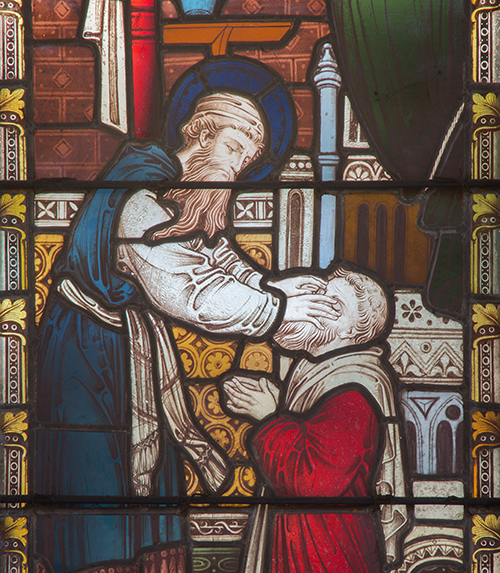
Saint Paul
Next week is the Feast of the Conversion of Saint Paul (January 25). It is a good time to meditate on the man who almost single-handedly spread the Good News across the ancient world, even while being continuously beaten and imprisoned. There is much to reflect on in regard to Paul and his work, much more than a single blog post allows. For now, I just want to briefly touch on his roles as persecutor, evangelist, and theologian to help better understand just how miraculous his conversion was.
To do that, we must go back to his early years. Paul had been born in Tarsus as Saul, the son of a Pharisee (and Roman citizen) who schooled him in Judaic law. When Saul was a young man, his father sent him to Jerusalem to study under Gamaliel, then the leader of the Sanhedrin. We can well imagine that under Gamaliel’s tutelage Saul developed his fervency for the Laws of Moses. To him, there existed no other laws but those which defined his faith, and any teachings opposing those laws were, quite simply, heretical.
Saul became a Pharisee, and as a fervent defender of Judaism he went on the attack against the followers of Christianity. He led the first wave of persecution against Christians in Jerusalem, and actively participated in the stoning of the first Christian martyr, Stephen. He was cruel and violently wrathful and single-minded in purpose: Upon hearing that Damascus was home to a growing number of Jesus’ followers, he headed there with the goal of bringing the heretics back to Jerusalem in chains.
As we know, it was on the road to Damascus that Saul was blinded by an intense light from heaven. Jesus asked Saul the reason for his persecution. Saul had no answer, only a question as to what he should do. The answer was later revealed by Ananias, who restored his sight: Saul would be a witness for the Son of God. It was further defined when Saul fell into a trance in the temple in Jerusalem: He would evangelize among the Gentiles. And so, Paul began his missionary journeys. His teaching that it was not necessary for Gentiles to be circumcised and to follow the Laws of Moses brought the conflict with Judaizers to a head and resulted in the Council of Jerusalem in AD 48, which ruled in Paul’s favor.
While we remember most that Paul was first a persecutor of Christians and then a tireless and courageous evangelist who traveled the ancient world bearing witness to Jesus as the Son of God, we sometimes forget that Paul was also the founder of Christian theology. That is, it was Paul who first linked Adam and Jesus, telling us that we all inherit the sins of Adam and can only be saved through Christ. It was this transforming vision of Jesus that resonated with the Gentiles and formed the foundation of Christianity.
The conversion of Paul shows us not only that Paul transformed from a strict adherent of Judaic law to fervent believer in Christ. It also shows the change within a man who at one time in his life exhibited little love toward his fellow man to one who discovered, through his belief in Jesus’ teachings, that in the end love was everything. As he said, “Though I have the gift of preaching, and understand all mysteries, and have all knowledge; and though I have all faith, so that I can move mountains; if I have not love I am nothing.”
NOTE: Of the 27 books of the New Testament, it is believed that Paul wrote 13: I and II Thessalonians, I Corinthians, I Timothy, II Corinthians, Galatians, Romans, Titus, Philippians, Philemon, Colossians, Ephesians and II Timothy.
